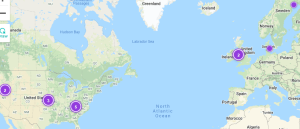
The most recent price, about $230/share, is just 16 times last year’s earnings. Considering that the average stock in the S&P 500 now has a PE of over 25, and that Facebook is bringing a quarter of its revenue to the net income line, that’s absurdly cheap.
It’s cheap because analysts are reading a shortfall in growth as a harbinger of doom. The three main apps – Facebook, Instagram, and WhatsApp – are losing popularity because people don’t trust the company. A lot of its future gains are going into “metaverse” software that analysts don’t understand.

The answer then is very simple. Rent. Facebook should be offering its cloud capacity to other services. Game services. Social media services. Even business services. Just the announcement that Facebook will rent its cloud capacity will juice the stock.
It can get new customers on price, and reach. Facebook dominates communications in the global south. No one beats free. Billions of people in India, in Southeast Asia, in Africa and Latin America now depend on the company’s free services. Anyone renting Facebook’s capacity gets that global reach.
Who might be interested? There are dozens of companies across India that might like a cheaper cloud solution. The same in Southeast Asia.
More important for investors, the announcement that Facebook’s network is available would change the subject, away from its weaknesses, toward its strengths. The stock would zoom upward. Analysts would suddenly decide it’s undervalued. Facebook would be seen as raising profitable cash it could then pour into new services.
It’s a guaranteed win-win.










